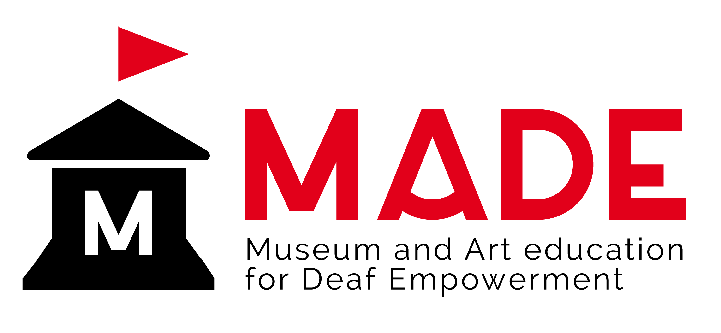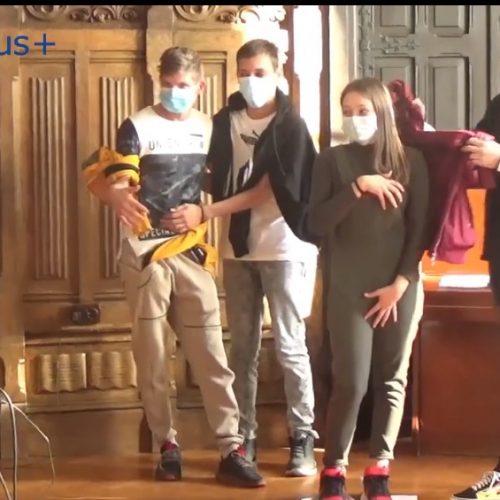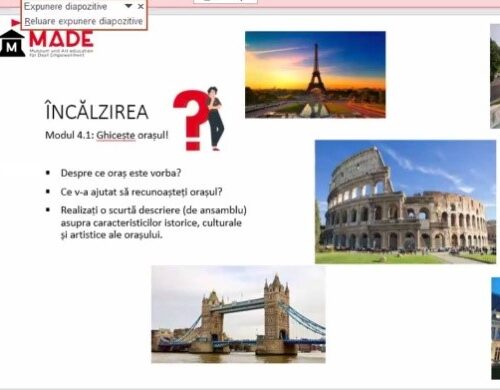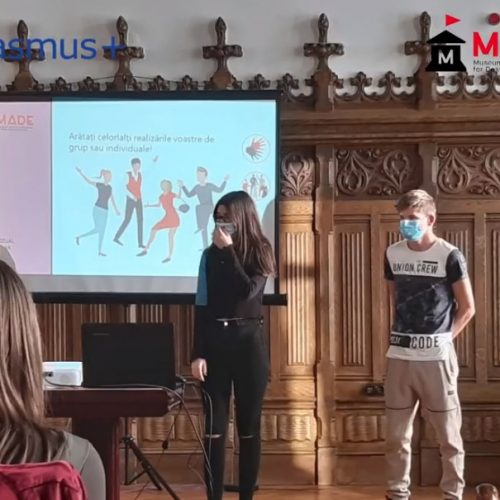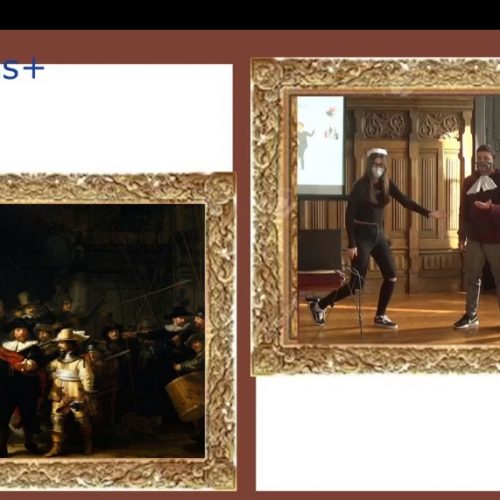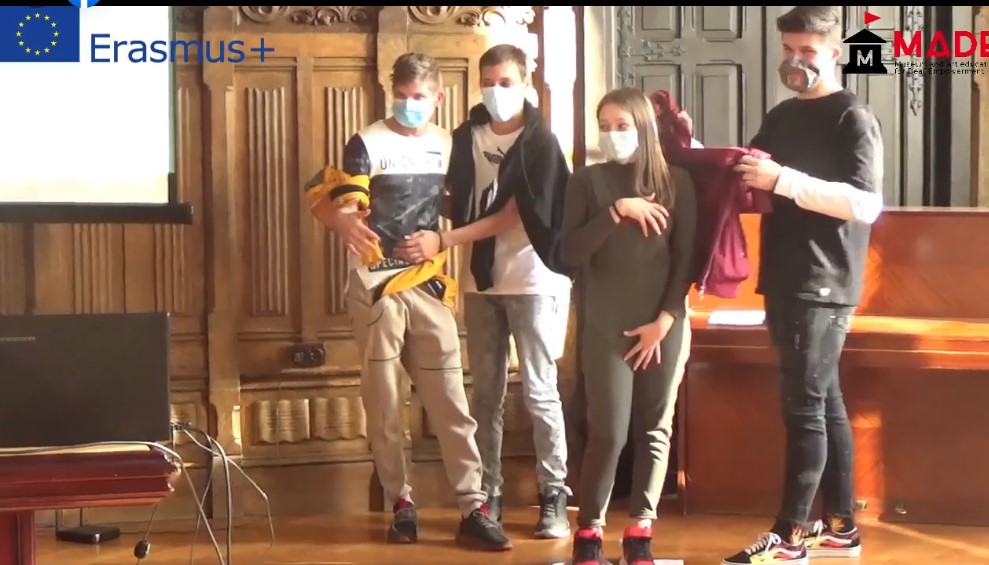
24 Mar ANPEDA implemented MADE training in Romania! Deaf museum guides for Deaf community!!!
The evolution of the COVID pandemic in Romania and the restrictions imposed by the Romanian state made the activities carried out within the MADE pilot training to be both face to face and online. We started the course in November 2020 when it was possible to carry out face-to-face activities. At the end of November, the restrictions on the spread of COVID imposed the conduct of online teaching activities. The face-to-face activities enjoyed a greater appreciation and participation from the learners compared to the virtual activities.
The face-to-face learning activities were carried out mainly within the National Museum Complex “Moldova” Iasi, which has its inside of the Palace of Culture in Iasi. Within the Museum Complex there are four museums:
- Museum of the History of Moldova
- “Stefan Procopiu” Museum of Science and Technology
- Art Museum
- Ethnographic Museum of Moldova
During the online activities, virtual museums from Romania were chosen such as: Bran Castle – http://www.castelulbran.ro; National Museum of History of Romania – http://www.muzeulvirtual.ro; National Museum of Natural History – http://www.imagofactory.ro ; The National Museum of the Romanian Peasant – http://www.tur.muzeultaranuluiroman.ro; National Museum of Art of Romania – http://www.mnar.arts.ro
In conclusion, the general pedagogical approach and the methods included in the MADE educational model were adequate in relation to the particularities of students and it gathered a very high satisfation level from learners. The learning materials included in the Toolkit were appreciated a lot by students and considered an added value in the implementation of the training programme.
